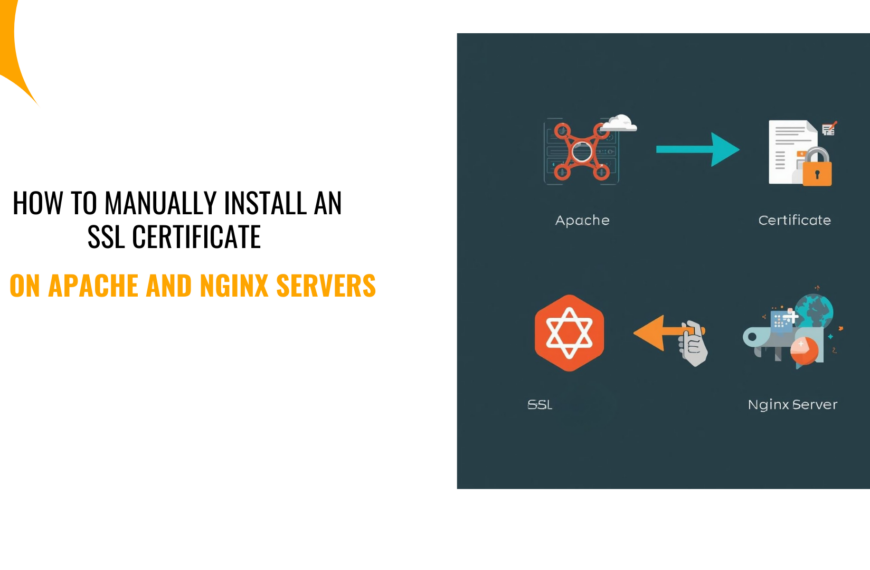Last updated on February 6th, 2024 at 04:54 am
Freelancing has become an increasingly popular way for students in India to earn money and gain work experience while still in college or university.
With the rise of the gig economy and digital platforms, there are now more opportunities than ever for students to find freelance jobs that fit their skills and schedule.
Freelancing refers to self-employment where individuals take on short-term jobs or projects for various clients.
Instead of working for one employer long-term, freelancers can work for multiple clients at once across different industries.
This gives students a lot of flexibility to take on only as much work as they can handle alongside their academic responsibilities.
Some major benefits of freelancing for students in India include:
- Earning extra money to cover tuition fees, rent, or other expenses
- Setting your own working hours to accommodate classes and exams
- Gaining real-world experience even without full-time employment
- Building skills and expertise in your field of study
- Expanding your professional network by working with various clients
- Getting a headstart on developing a portfolio or resume
- Having the freedom to work from any location rather than commuting to an office
Starting freelancing while still in college can set students up for success after graduation.
The extra income and experience make graduates more competitive when applying for jobs or further education.
Skills Needed to Start Freelancing in India as a Student
To be a successful freelancer in India as a student, having the right mix of technical and soft skills is critical.
Here are some of the key skills students should focus on developing:
Technical Skills
- Subject matter expertise – Having in-depth knowledge of your field or niche is essential as a freelancer. Take additional courses or training to master your subject. For example, a finance student could take Excel classes to offer financial modeling services.
- In-demand digital skills – Most freelance work today requires some technology expertise. For writing gigs, learn SEO fundamentals. For design, learn Photoshop and Illustrator. For programming, master languages like JavaScript.
- Project management – Know how to break down projects into tasks and milestones. Use tools to organize work and collaborate with clients. Students can get certified in project management fundamentals.
- Software proficiency – Be an expert user of software and tools needed for your projects. For example, video editors should know Premiere Pro and After Effects.
Soft Skills
- Communication – Articulate your process and ideas clearly to clients. Be responsive over email, calls and project management platforms. Practice active listening and writing skills.
- Time management – Balance multiple projects and deadlines like a pro. Plan your schedule carefully to ensure work gets completed on time.
- Self-discipline – Freelancing requires diligent work habits and motivation to succeed independently. Set daily goals and minimize distractions.
- Creative problem-solving – When project challenges arise, adapt and develop innovative solutions for clients. Think outside the box.
- Collaboration – Build trust with clients and be willing to consider feedback. Prioritize what’s best for the project, not just what you want.
- Self-marketing – Promote your personal brand and freelance services confidently. Network with potential clients and pitch effectively.
Building a mix of specialized technical skills and universal soft skills gives students a major advantage in launching a freelance career while still at college.
Building your profile
Creating an appealing online profile and presence on popular freelancing platforms is key for students in India looking to attract potential clients.
Here are some top tips to build your freelance profile:
Create a Professional Website
Get your own domain name and hosting for a branded freelance website to showcase your services. Opt for a simple, clean design that’s mobile-responsive.
Highlight your skills, experience, education and specific services you offer. Include testimonials from early clients.
Write strong copy to explain your expertise. Use clear calls to action so visitors can contact you.
Feature some of your best work in a portfolio gallery. Only showcase your highest-quality projects.
Optimize your website for SEO with relevant keywords so clients can find you online.
Use keyword research to identify terms to target.
Craft Your Freelancer Profiles
Sign up for profiles on popular freelancing sites like Upwork, Fiverr, Freelancer, Guru.
Fill out your profile fully. Include services, skills, portfolio, certifications, etc.
Write a compelling headline like “Finance Student Available for Excel Consulting”
Get positive reviews from your first clients to build social proof in your profile.
Become “Top Rated” on each platform by delivering excellent work consistently.
Leverage Social Media
Be active on LinkedIn. Connect with professionals in your niche. Showcase your expertise in posts.
Create content and build a following on Twitter, Instagram, YouTube relevant to your field.
Link to your website/profiles in social media bios so people can hire you.
Participate in relevant Facebook Groups and Subreddits to find clients. Avoid spammy promotion.
Use professional headshot for consistent profile photo across platforms.
With an integrated online presence, students can demonstrate expertise and improve discoverability to attract the right freelance clients.
Finding Freelance Work in India as a Student
Finding enough well-paying clients is often the biggest challenge for student freelancers in India.
Here are effective strategies to discover new freelance job opportunities:
Check Freelance Boards
Register on boards like Flexing It, Truelancer, and FreelancerMap to access curated gigs in your industry.
Create alerts for relevant keywords.
Check boards daily and promptly apply to interesting projects. Submit custom proposals to stand out.
Partner with a friend to subcontract bigger projects and collaborate.
Attend Events
Find local startup events, networking meetups and industry conferences to connect with potential clients.
Join freelancing communities like HackerHire or The Indie Workers to meet clients.
Attend events focused on your niche (design, finance, tech etc.) to find specific leads.
Collect business cards and follow up later about freelance opportunities.
Network Online
Leverage LinkedIn to connect with those in your desired industry. Offer to help them with your expertise.
Join relevant Facebook Groups and Slack Communities to promote your services and interact with members.
Contribute valuable insights on Quora and Reddit related to your field to gain visibility.
Partner with influencers or brands on Twitter for freelance gigs.
Guest post for niche blogs to get exposure. Include a bio with your freelance details.
Ask for Referrals
Let friends and professors know you’re freelancing and looking for projects related to what you study.
Reach out to previous employers, internship supervisors or alumni from your college for leads.
Offer referrals commissions to incentivize happy clients to recommend you.
Follow up with every lead promptly to convert referrals into gigs.
With some hustle and smart networking, students can build a steady pipeline of clients.
Managing your work
Juggling studies while managing multiple freelance projects requires excellent time management and work habits for student freelancers. Here are some tips:
Set a Schedule
Block out fixed times each week when you will work on freelancing, treating it like a class. Stick to the routine diligently.
Define your most productive hours (mornings, late nights etc) and do focused project work then.
Use a calendar to schedule everything – classes, assignments, freelance project deadlines, meetings with clients.
Find a balance between studies and work. Don’t take on too much that you burn out.
Be Organized
Use apps like Trello or Asana to create project boards defining tasks to be completed.
Break down big assignments into smaller milestones and tackle them one by one.
Maintain an organized file system on your computer and cloud for different client projects.
Set reminders for important deadlines, calls, invoices etc so nothing slips through the cracks.
Communicate Proactively
Provide frequent project updates to clients to manage expectations and build trust.
Be extremely responsive to client requests and questions via your preferred communication channel.
If delays seem likely, inform clients as early as possible and offer solutions.
Ask clarifying questions upfront to avoid misunderstandings later.
Avoid Distractions
When working, block out distractions like social media, TV, phone calls. Stay focused.
If you get stuck on a project, take a short break and then refocus, don’t spiral.
Use apps like Forest or Freedom to manage procrastination by limiting access to distracting sites.
Work from quiet locations like the library to minimize interruptions.
Outsource Responsibly
If overloaded, identify tasks you can outsource to other freelancers at affordable rates.
Delegate work but still maintain oversight over quality control and deadlines.
Build a reliable network of subcontractors in your domain who can support during peaks.
With discipline and organization, students can successfully manage a freelance career alongside their academics. The key is being proactive, leveraging tools judiciously and not taking on too much at once.
Handling finances
From invoicing clients to budgeting income, managing the financial and tax responsibilities is critical for students freelancing in India. Some best practices include:
Generate Professional Invoices
Use an invoicing app like InvoiceNinja to create invoices to send clients on completion of work. Keep a copy for records.
Include vital details like invoice number, due date, bank details, description of work done and payment terms.
Set up automated payment reminders for overdue invoices to maintain cash flow.
Get Paid On Time
Be extremely organized with payment terms, dates, receipts to ensure regular payments.
Inquire about preferred payment modes of clients – bank transfer, PayPal, checks etc.
Politely follow up about delayed payments. Offer incentives for quicker payment if needed.
Use escrow services on freelance sites for milestone payments on bigger projects.
Maintain Financial Records
Download bank and payment statements for all freelance income received.
Keep invoices, receipts, expense information organized either digitally or in a register.
Keep track of payments in a spreadsheet – date, client name, amount, project etc
Stay compliant in case your freelance income exceeds taxable amount and needs reporting.
Manage Your Budget
Open a separate bank account to receive your freelance income segregated from personal finances.
Build an emergency fund with a few months of basic expenses as a buffer in case of income drops.
Invest surplus income into courses, tools, equipment to grow your freelance services.
Don’t take unnecessary risks – grow slowly and stabilize finances before major personal or business expenses.
Following good financial practices will provide peace of mind and keep student freelancing businesses solvent for the long run.
Key Takeaways
- Freelancing allows students flexibility to earn and gain experience alongside studies.
- Develop specialized technical skills like programming or Excel plus soft skills like communication, discipline.
- Create an online portfolio and strong freelancer profiles to attract clients.
- Use job boards, events, networking and referrals to find freelance projects.
- Manage time tightly, avoid distractions, delegate work to avoid burnout.
- Send professional invoices and follow up on payments promptly.
- Maintain financial records and budget wisely as you grow your freelance business.
 Web HostingBudget-friendly shared hosting plans
Web HostingBudget-friendly shared hosting plans Domains SearchFrom .com to unique country domains, explore and register extensions worldwide.
Domains SearchFrom .com to unique country domains, explore and register extensions worldwide. WordPress HostingPower your blog or business with WordPress hosting.
WordPress HostingPower your blog or business with WordPress hosting. Email HostingSimple, secure email hosting that helps you stay connected and professional.
Email HostingSimple, secure email hosting that helps you stay connected and professional. Reseller HostingStart your own hosting business with easy and reliable reseller hosting plans.
Reseller HostingStart your own hosting business with easy and reliable reseller hosting plans. AffiliateJoin our affiliate program and earn commissions every time you bring in new customers.
AffiliateJoin our affiliate program and earn commissions every time you bring in new customers. cPanel HostingHosting powered by cPanel, the world’s most user-friendly control panel.
cPanel HostingHosting powered by cPanel, the world’s most user-friendly control panel. Windows HostingBuilt for Windows applications and websites
Windows HostingBuilt for Windows applications and websites IN Domain PricesDon’t miss out on the best domain deals in India!
IN Domain PricesDon’t miss out on the best domain deals in India! WHOIS LookupFind out who owns a domain name with a quick and easy WHOIS search.
WHOIS LookupFind out who owns a domain name with a quick and easy WHOIS search. Domain TransferTransfer your domain to us and enjoy reliable support every step of the way.
Domain TransferTransfer your domain to us and enjoy reliable support every step of the way. .Com DomainGet the most trusted domain for worldwide credibility
.Com DomainGet the most trusted domain for worldwide credibility All TldsSearch and register domain extensions worldwide.
All TldsSearch and register domain extensions worldwide. Managed VPS HostingNot a tech expert? Choose our fully managed VPS service.
Managed VPS HostingNot a tech expert? Choose our fully managed VPS service. Dedicated ServersTake full power and total control of your own physical server.
Dedicated ServersTake full power and total control of your own physical server.







